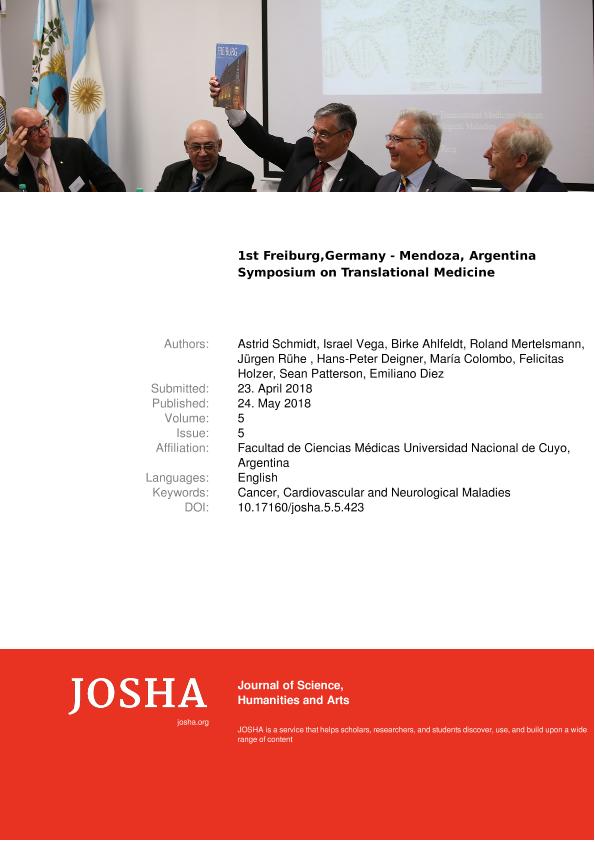Evento
Chlamydia trachomatis: pathogen-host cell interplay
Alonso Bivou, Mariano Ángel ; del Balzo, Diego Damián
; del Balzo, Diego Damián ; Lujan, Agustin Leonardo
; Lujan, Agustin Leonardo ; Buonfigli, Julio Federico
; Buonfigli, Julio Federico ; Capmany, Anahi
; Capmany, Anahi ; Lucchesi, Ornella
; Lucchesi, Ornella ; Gambarte Tudela, Julian Alberto
; Gambarte Tudela, Julian Alberto ; Leiva, Natalia Lorena
; Leiva, Natalia Lorena ; Sanchez, D.; Losinno, Antonella Denise
; Sanchez, D.; Losinno, Antonella Denise ; Damiani, M. T.
; Damiani, M. T.
 ; del Balzo, Diego Damián
; del Balzo, Diego Damián ; Lujan, Agustin Leonardo
; Lujan, Agustin Leonardo ; Buonfigli, Julio Federico
; Buonfigli, Julio Federico ; Capmany, Anahi
; Capmany, Anahi ; Lucchesi, Ornella
; Lucchesi, Ornella ; Gambarte Tudela, Julian Alberto
; Gambarte Tudela, Julian Alberto ; Leiva, Natalia Lorena
; Leiva, Natalia Lorena ; Sanchez, D.; Losinno, Antonella Denise
; Sanchez, D.; Losinno, Antonella Denise ; Damiani, M. T.
; Damiani, M. T.
Tipo del evento:
Simposio
Nombre del evento:
Argentina Symposium on Translational Medicine
Fecha del evento:
05/03/2018
Institución Organizadora:
Universidad Nacional de Cuyo. Facultad de Ciencias Médicas;
Universidad de Friburgo;
Cónsul Honorario de la República Federal de Alemania;
Título de la revista:
Journal of Science, Humanities and Arts
Editorial:
International Academy of Sciences, Humanities and Arts
ISSN:
2364-0626
Idioma:
Inglés
Clasificación temática:
Resumen
Chlamydia trachomatis (Ct) is the most prevalent sexually-transmitted bacterium worldwide. It completes its entire life cycle within human cells, inside of a modified vacuole termed inclusion. As an obligate intracellular pathogen, Ct has evolved multiple strategies to bind to, invade and parasite the host cell. In our laboratory, we aim to describe the interaction of the bacterium and the host from various approaches and scales. We have studied the manipulation of intracellular trafficking pathways executed by the bacterium to, conveniently, prevent its degradation, create a favorable niche for replication and evade the immune defense. In this way, we have reported the active recruitment of several Rab proteins and their effectors (Rab14, FIP2, Rab39a, Rab39b) to the membrane inclusion, a process that results in the acquisition of nutrients essential for growth and replication. Moreover, we study the modulation of signaling pathways (Akt, PKC) during the course of infection that may play a role in the development of Ct. To further complete the study of Ct life cycle in our team, we have described how galectin-1 enhanced its attachment to cervical epithelial cells to promote entry and invasion. A thorough understanding of the epidemiology and biology of Ct is crucial for the improvement of therapeutic strategies. For the former, we have dedicated efforts for the development of diagnostic tools of Ct and other sexually-transmitted pathogens; and for the latter, our laboratory has established a murine model of infection of Ct for in vivo assays of new therapeutic targets.
Archivos asociados
Licencia
Identificadores
Colecciones
Eventos(IHEM)
Eventos de INST. HISTOLOGIA Y EMBRIOLOGIA DE MEND DR.M.BURGOS
Eventos de INST. HISTOLOGIA Y EMBRIOLOGIA DE MEND DR.M.BURGOS
Eventos(IMBECU)
Eventos de INST. DE MEDICINA Y BIO. EXP. DE CUYO
Eventos de INST. DE MEDICINA Y BIO. EXP. DE CUYO
Citación
Chlamydia trachomatis: pathogen-host cell interplay; Argentina Symposium on Translational Medicine; Mendoza; Argentina; 2018; 19-19
Compartir
Altmétricas



